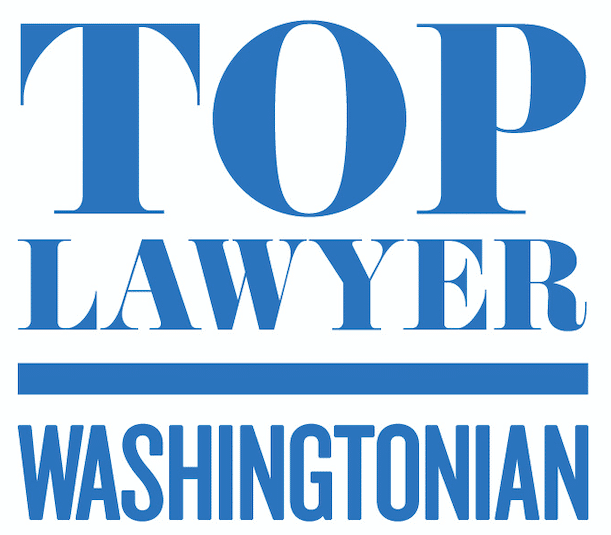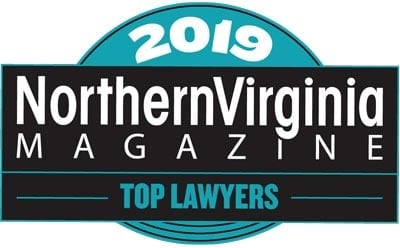
Whistleblower Attorney’s Guide to False Claims Act and NDAA Whistleblower Protection Laws
The False Claims Act (“FCA”) protects employees, contractors, and agents who engage in protected activity from retaliation in the form of their being “discharged, demoted, suspended, threatened, harassed, or in any other manner discriminated against in the terms and conditions of employment.” 31 U.S.C. § 3730(h)(1).
The whistleblower protection provisions of the National Defense Authorization Act (“NDAA”) protect whistleblowers who report waste, fraud or abuse.
If you have suffered retaliation for whistleblowing, contact our experienced whistleblower lawyers today by calling us at 202-262-8959 or clicking here.






Does the False Claims Act protect whistleblowers against retaliation?
Yes, the False Claims Act (“FCA”) protects employees, contractors, and agents who engage in protected activity from retaliation in the form of their being “discharged, demoted, suspended, threatened, harassed, or in any other manner discriminated against in the terms and conditions of employment.” 31 U.S.C. § 3730(h)(1).
False Claims Act Whistleblower Protection LawWhat is protected whistleblowing or protected conduct under the False Claims Act Retaliation Provision?
The FCA protects:
- “lawful acts . . . in furtherance of an action under [the FCA]”; and
- “other efforts to stop 1 or more [FCA] violations.” 31 U.S.C. § 3730(h)(1).
Recent cases have interpreted this protected activity to include:
- internal reporting of fraudulent activity to a supervisor;
- steps taken in furtherance of a potential or actual qui tam action;
- efforts to remedy fraudulent activity or to stop an FCA violation; and
- refusal to violate the False Claims Act.
Does the False Claims Act anti-retaliation law protect efforts to stop a government contractor from defrauding the government?
Yes: the FCA protects whistleblowers who try to prevent one or more violations of the FCA, as long as they have an objectively reasonable belief that their employer is violating, or will soon violate, the FCA. Case law has clarified that efforts to stop an FCA violation are protected even if they are not meant to further a qui tam claim. For example, refusing to falsify documentation that will be submitted to Medicare is protected.
Is False Claims Act Whistleblower Protection Limited to Disclosures About the Whistleblower’s Employer?
No. The whistleblower protection provision of the False Claims Act (FCA) protects “lawful acts done by the employee, contractor, agent or associated others in furtherance of an action under [the FCA] or other efforts to stop 1 or more violations of [the FCA].”
Recently the Fourth Circuit held in O’Hara v. Nika Technologies, Inc., 2017— F.3d —-2017 WL 6542675 (4th Cir. Dec. 22, 2017):
The plain language of § 3730(h) reveals that the statute does not condition protection on the employment relationship between a whistleblower and the subject of his disclosures. Section 3730(h) protects a whistleblower from retaliation for “lawful acts done … in furtherance of an action under this section.” 31U.S.C. § 3730(h)(1). The phrase “an action under this section” refers to a lawsuit under §3730(b), which in turn states that “[a] person may bring a civil action for a violation of [the FCA].” Id. §3730(b)(1). Therefore, § 3730(h) protects lawful acts in furtherance of an FCA action. This language indicates that protection under the statute depends on the type of conduct that the whistleblower discloses—i.e., a violation of the FCA—rather than the whistleblower’s relationship to the subject of his disclosures.
Does the False Claims Act retaliation law protect internal reporting to a government contractor or grantee?
Yes, case law has clarified that the act of internal reporting itself suffices as both the effort to stop the FCA violation and the notice to the employer that the employee is engaging in protected activity.
Does the False Claims Act prohibit retaliation against an employee for the employee’s refusal to participate in a fraudulent scheme?
Yes. As the Second Circuit held in Fabula v. American Medical Response, Inc., an employee’s refusal to sign fraudulent reimbursement documentation constitutes protected whistleblowing. There the court notes that “[t]here is, at best, a hair’s-breadth distinction between complaining internally that a practice is illegal under the FCA and advising a supervisor of one’s refusal to engage in that illegal practice.”
What acts of retaliation are prohibited by the False Claims Act anti-retaliation provision?
The False Claims Act prohibits an employer from discharging, demoting, suspending, threatening, harassing, or in any other manner discriminating against a whistleblower. Prohibited retaliation includes:
- oral or written reprimands;
- reassignment of duties;
- constructive discharge; and
- retaliatory lawsuits against whistleblowers.
What type of constructive discharge is prohibited by the False Claims Act anti-retaliation law?
In Smith v. LHC Group, Inc., 2018 WL 1136072 (March 2, 2018), the Sixth Circuit held that where an employer ignores an employee’s disclosures about fraud on the government and the employee is reasonably concerned that he may be charged with fraud by the government if he remains in the job, the employee’s resignation is an actionable constructive discharge. In other words, a jury could find that the employer’s alleged fraudulent behavior plus the employee’s moral conscience and reasonable fear of being accused of participating in the employer’s fraud is enough to justify quitting.
What must a whistleblower prove to prevail in a False Claims Act whistleblower retaliation case?
A whistleblower must prove that:
- the whistleblower engaged in protected activity;
- the whistleblower’s employer took an adverse employment action against him or her; and
- the adverse employment action was taken because of the whistleblower’s protected activity. 31 U.S.C. § 3730(h)(1).
What damages can a whistleblower recover under the whistleblower-protection provision of the False Claims Act?
A whistleblower who prevails in an anti-retaliation action under the FCA may recover:
- reinstatement;
- double back pay, plus interest;
- special damages, which include litigation costs, reasonable attorney’s fees, emotional distress, and other noneconomic harm from the retaliation. 31 U.S.C. § 3730(h)(2).
Recently, a jury awarded more than $2M to a whistleblower in an FCA retaliation case. As there is no cap on compensatory damages, FCA retaliation plaintiffs can potentially recover substantial damages for the retaliation that they have suffered.
What is the statute of limitations for a False Claims Act Whistleblower Retaliation Case?
The statute of limitations for FCA retaliation claims is three years from the date on which the retaliation occurred. FCA retaliation claims can be brought directly in federal court; there is no administrative exhaustion requirement.
False Claims Act Qui Tam Actions
- What types of false claims are prohibited by the False Claims Act?
- What is the first-to-file bar in False Claims Act qui tam cases?
- What is the requirement to file a False Claims Act qui tam action under seal?
- What is the statute of limitations for a False Claims Act qui tam action?
- What is the public disclosure bar in the False Claims Act?
- What is materiality under the False Claims Act?
- What is “Scienter” Under the False Claims Act?
- Is a Violation of the Anti-Kickback Law Also a Violation of the False Claims Act?
- Does the False Claims Act Prohibit Bid Rigging?
- Does the False Claims Act Prohibit Fraudulent Inducement of a Contract?
Whistleblower Protections for Employees of Government Contractors and Grantees
- Does the False Claims Act prohibit whistleblower retaliation?
- Are federal employees protected from whistleblower retaliation?
- Where can a federal employee report waste, fraud or abuse?
- Is an attempt to stop fraud protected under the False Claims Act?
- Will I get a reward for reporting fraud being committed by my employer?
- Must a whistleblower disclose unequivocal unlawful conduct to be protected?
- Is threatening a countersuit against a whistleblower an act of retaliation?
- Is a lawsuit against a whistleblower actionable retaliation?
- What causal connection must be established to prove whistleblower retaliation?
- How does a whistleblower prove retaliation?
- Can I use confidential documents from my job to prove a whistleblower retaliation case?
- Am I permitted to make secret recordings at work to use in a whistleblower case?
- Is knowledge of protected conduct and close temporal proximity sufficient to prove retaliation?
- What causal connection must be established to prove whistleblower retaliation?
- What do employers typically demand in the settlement of an employment case?
Guide to NDAA Whistleblower Protection Law
For more information about whistleblower protections for employees of government contractors and grantees, including Department of Defense contractors, see our Practical Law Practice Note titled Whistleblower Protections Under the National Defense Authorization Act. This Practice Note surveys the legal protections for employees of federal contractors, subcontractors, and grantees that receive federal funds who report waste, fraud, or abuse involving federal funds, a violation of law, rule, or regulation related to a federal contract, or a substantial and specific danger to public health or safety.
In addition, the outline explains the procedures that govern the filing, investigation and adjudication of National Defense Authorization Act (NDAA) whistleblower retaliation claims.
Topics covered include:
- Protected whistleblowing under the NDAA.
- The scope of coverage of the NDAA’s whistleblower protection provisions.
- The reasonable belief standard governing NDAA protected whistleblowing.
- Proving “contributing factor” causation
- The same-decision affirmative defense
- Remedies or damages available to prevailing NDAA whistleblowers.
Experienced False Claims Act Whistleblower Retaliation and Whistleblower Protection Lawyers
The experienced whistleblower attorneys at leading whistleblower law firm Zuckerman Law have substantial experience representing whistleblowers disclosing fraud and other wrongdoing at government contractors and grantees. To schedule a free preliminary consultation, click here or call us at 202-262-8959.


![]()

Our experience includes:
- Representing whistleblowers in NDAA retaliation claims before the Department of Defense, and Department of Homeland Security, Department of Justice Offices of Inspectors General.
- Litigating False Claims Act retaliation cases.
- Representing qui tam relators in False Claims Act cases.
- Representing whistleblowers disclosing fraud on the government in Congressional investigations.
- Training judges, senior Office of Inspector General officials, and federal law enforcement about whistleblower protections.
In addition, we have substantial experience representing whistleblowers under the Whistleblower Protection Act (WPA) and enforcing the WPA, the law that the NDAA whistleblower provisions are based upon. Jason Zuckerman served as Senior Legal Advisor to the Special Counsel at OSC, where he worked on the implementation of the Whistleblower Protection Enhancement Act and oversaw several high-profile investigations of whistleblower retaliation claims and whistleblower disclosures.
We have also written extensively about whistleblower protections for employees of government contractors and grantees, including the following articles and blog posts:
- Boosting Contractor Employee Whistleblower Protections, Law 360 (December 2016)
- New Tools to Combat Whistleblower Retaliation, Taxpayers Against Fraud Education Fund Quarterly Review, Vol. 57 (October 2010)
- GAO Report Calls for Improvements in Government Contractor Whistleblower Protections
- False Claims Act Retaliation Decision Underscores Broad Scope of FCA Whistleblower Protection
- NDAA Provides Robust Whistleblower Protection
- FAR Amendment Bars Agencies from Subsidizing Whistleblower Retaliation
- NDAA Contractor Whistleblower Protection Law Highly Effective in Rooting Out Fraud
- Congress Enacts Anti-Gag Provision in Cromnibus Spending Bill
- Whistleblower Lawyer Jason Zuckerman Will Speak About False Claims Act Litigation at Taxpayers Against Fraud Conference
- Whistleblower Protections Under the Whistleblower Protection Act, Practical Law (October 2016)
- Whistleblower Lawyer Jason Zuckerman Quoted in National Law Journal
- Whistleblower Lawyer Jason Zuckerman Quoted About Federal Employee Whistleblower Rights
- Washington Post Quotes Whistleblower Attorney Jason Zuckerman About Chilling Effect of Insider Threat Program
- How to foster a more ethical culture
- Whistleblower Lawyer Jason Zuckerman Quoted About MacLean Whistleblower Protection Act Case
- Trump Questionnaire Raises Concerns About Retaliation Against Energy Department Staff
- CFPB official wants to silence a whistleblower before he can talk to Congress
whistleblower_lawyers_012017_infographic




